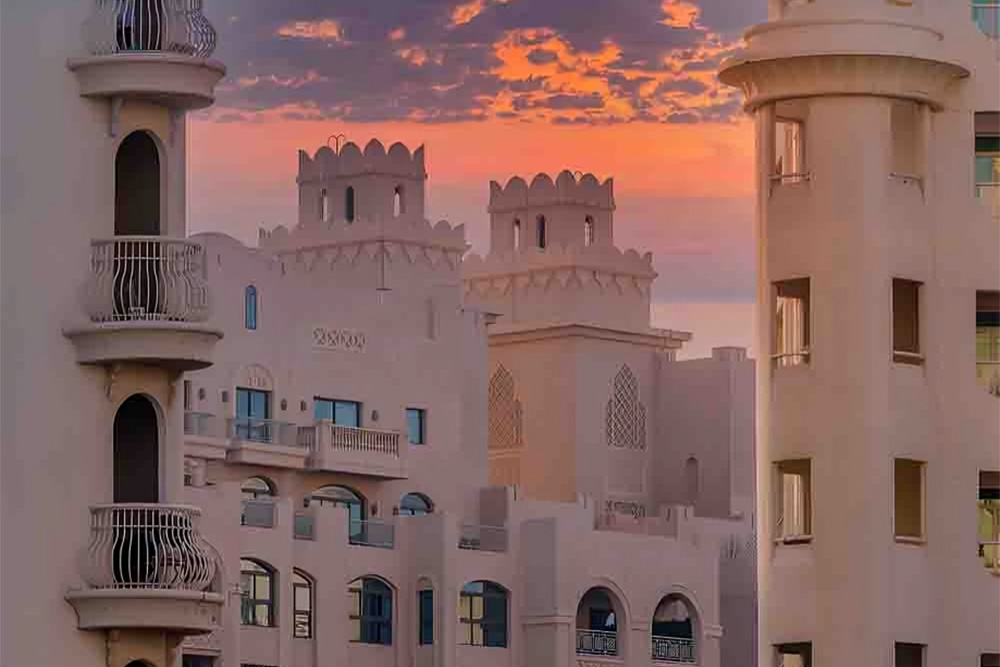Dubai is a hub of attractive new real estate projects. It has a variety of property ownership options for both residents and investors.
Commonhold property is one of the modern methods that has gained popularity. Let’s discuss commonhold properties, their benefits, and how they fit in Dubai’s vibrant real estate market.
- What is Commonhold Property
- Regulations Specific to Commonhold Property
- Rights and Responsibilities of Commonhold Property Owners
- Property-Related Expenses Covered by Commonhold Property Owners
- FAQs

What is Commonhold Property
Instead of purchasing the entire apartment complex, real estate buyers can invest in individual apartments inside. This would be considered purchasing a commonhold property.
This way, the various owners of a Dubai building share the maintenance and servicing costs instead of just one.
The best part is that commonhold property owners in Dubai receive a title deed and the right of possession, which verify their rightful ownership of the property. They do not, however, own the land where the building stands.
On the opposite end of the spectrum lie freehold properties that give permanent ownership. Buyers of freehold properties become the owners of the building and the surrounding land. Foreign citizens and locals both can buy these properties in approved locations. Buyers with freehold ownership can make structural changes to the property, whereas commonhold properties do not give this option.

Regulations Specific to Commonhold Property
Certain laws come into play when you are trying to buy property. Commonhold properties in Dubai are governed by specific regulations designed to manage jointly owned real estate effectively.
The Jointly Owned Property (JOP) Law outlines the structure and operation of Owners’ Associations (OA), which are responsible for managing and maintaining shared areas and facilities.
Regulations require that developers register the commonhold property with RERA and establish an OA to oversee the property’s management. Additionally, the law mandates transparency in financial matters, including the collection and use of service charges and maintenance fees.

Rights and Responsibilities of Commonhold Property Owners
Owners of commonhold properties in Dubai enjoy specific rights and bear certain responsibilities to ensure harmonious community living. Key rights include:
- Ownership Rights: Owners have the right to use and enjoy their individual units and share common areas.
- Voting Rights: Owners can vote on OA decisions, such as budgets, maintenance plans and other community matters.
- Transparency: Owners have the right to access information about OA activities, financial statements, and meeting minutes.
Responsibilities of commonhold property owners include:
- Service Charges: Owners must pay regular service charges and maintenance fees, which fund the upkeep of common areas and facilities.
- Compliance: Owners must adhere to the rules and regulations set by the OA, including bylaws related to property use, noise, and alterations.
- Participation: Active participation in OA meetings and decisions is encouraged to ensure the community’s needs are met and interests are represented.
Understanding the legal framework and the specific regulations for commonhold properties is essential for prospective buyers and current owners to navigate the complexities of property ownership in Dubai effectively.

Property-Related Expenses Covered by Commonhold Property Owners
As mentioned earlier, commonhold properties in Dubai are not held by a single person. Thus the developer collects service costs from all owners. The Dubai Land Department (DLD) provides a Service Charges Index for calculating these charges.
There are fees that owners of commonhold properties need to pay.
- Maintenance charges
- Utility bills
- Improvement charges
- Service fees for managers
- Service fees for heating and cooling systems
Commonhold properties are freehold apartments that can be purchased in specified freehold areas in Dubai. Some well-known areas with freehold apartments include:
- Jumeirah Village Circle
- The Meadows
- The Springs
- Business Bay
- Dubai Marina
- Downtown Dubai

FAQs
Of course! Foreigners can get property in Dubai’s designated freehold districts, allowing them complete ownership and a chance to participate in the city’s rising real estate market.
Although commonhold and freehold are the same, freehold enables tenants to become directors of their leasehold company by purchasing shares from the landlord, whereas commonhold has no ownership limits and lets tenants manage the property.
The benefits of owning a commonhold property in Dubai include shared maintenance of common spaces, permanent ownership, transparency in management, and a feeling of community that improves security and control over your investment.
Commonhold homes in Dubai provide a flexible and community-oriented ownership model, combining the advantages of shared responsibility with the security of permanent ownership. Situated in several prominent freehold areas, these properties provide an attractive option for residents and investors who are looking for a balanced approach to property ownership in Dubai.
Looking for expert guidance on Dubai real estate? Head on over to the Property Finder blog
